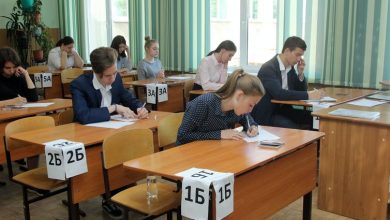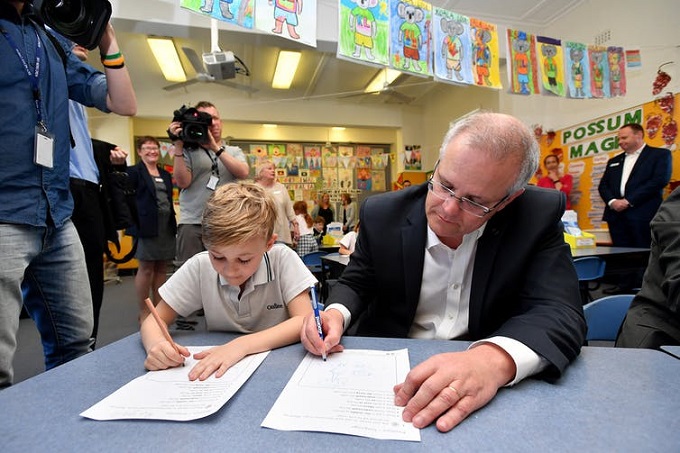Mathematics practice makes progress
It is a core component of any school curriculum: choosing the right maths programme is an essential and complex process.

Schools must find a programme that will push students to reach their full potential while lessening maths anxiety by building confidence in cautious learners and extending challenge to more confident learners.
Check out the full article in our latest print issue.
Michelle Kelly from Modern Teaching Aids, a leading Australian supplier of educational resources, spoke with us about the company’s partnership with US-based, not-for-profit organisation Mind Research, bringing their patented spatial-temporal approach to Australia for the first time. Mind Research’s innovative approach utilises the brain’s ability to manipulate objects in space and time to solve problems via their research-based digital maths platform, ST Maths.
With ST Maths, explains Michelle, the foundational concepts are taught visually, then the ideas are connected to the symbols, language and robust maths conversation. “This approach works so well because, with visual learning, students are better equipped to tackle unfamiliar maths problems, recognise patterns and build conceptual understanding. When you remove language barriers, the problem becomes accessible to all students, regardless of skill level or language background.
“A web-based program that provides scaffolded support to students and non-linear learning journeys allows students to move at their own pace, repeat problem types they struggle with and apply mathematical thinking strategies to a diverse range of problems, which is beneficial to all students.
“Teacher reports are helpful to illustrate the maths outcomes each student has covered, as well as the amount of time spent using the platform and puzzle completion. While some struggle is beneficial, teachers can also check on students’ pre- and post-quiz scores and receive alerts when students are struggling.
“It’s easy for teachers to track the individual progress of students at a granular level. Each student can be assigned to individual learning journeys based on their strengths and weaknesses.
Although students are initially set at a grade level based on their class, there is no limit to where they can be placed on the maths skills continuum. This means that a student who is confident with Number and lagging in Algebra can be set lower-level Algebra problems to support their development while moving ahead a grade level in Number.”
Maths anxiety is very real, according to researchers from Queen’s University Belfast and Loughborough University. “The feeling of tension and fear that many people experience when called on to work out a sum … can lead to behavioural problems in class, as well as physical symptoms such as butterflies in the stomach and a racing heart,” they write in The Conversation.
Where maths anxiety can impact student performance, the research recommends encouraging learners and their families to engage in gamified maths experiences and to develop positive attitudes towards mathematics especially in the first few years of school.
A mix of gamification and activities benefits students, according to Michelle. “There are a great many online maths learning programs that gamify student activity using points, rewards, flashy arcade game style animations and/or rely on speed. The trouble is that these types of gamification create a system that can actually be demotivating for some students or produce shallow learning where students have only learned to apply a specific function in a specific context. However, in the case of ST Maths, gamifying with engaging characters and problems can encourage students to engage and persist while developing the deeper conceptual understanding or mathematical thinking skills that are needed for long-term success in mathematics.”
Maths Day events work wonders for schools
Expert on all things maths incursion, we spoke with World of Maths’ Tim Tritton, who regularly works with schools to stage ‘Maths Day’ events and hands on learning.
He described the approach as a unique way to explore general problem solving with teachers and learners: “We take the students away from devices and ‘textbooks’ for a guided discovery lesson with our large Maths activities. The activities provided apply to real life tasks allowing students to relate to the activity and feel engaged.
“We have hidden all kinds of complex maths problems in our activities, which means students instead focus on the full sensory experience to come up with solutions – listening, watching, reading, speaking, and manipulating ideas with their hands.”
The pedagogical opportunities are exciting for teachers, Tim has found: “We see many teachers wanting practical, ‘back to basics’ Maths where students can explore, communicate and relate to the learning. Hands-on sessions come with worksheets for students to fill out so teachers can check student progress. There is also the opportunity for students at the end of each session to explain their answers for the Maths activities provided.
“Students work in groups so our teachers can track group progress during the session, witnessing the engagement, willing participation and enjoyment of the students.
Teachers are also supplied with an eight-page answer booklet with follow on work and ways the activities may apply to other real-life situations.
Which aspects of maths programmes best develop problem solving skills and confidence while keeping students with varied abilities and needs engaged?
“Mathematical anxiety is something that I do hear about often from teachers, and I think this is something that approachable and enjoyable activities can assist with on a basic level.”
Tim suggested the best and simplest way to accomplish this is to offer activities with instructions that students can comprehend, that they find relatable, and that they find fun. “If students feel they are having a fun experience, they may be more willing! Confidence is key… We use different sets of 17 large colourful activities in sessions with students of varied abilities to encourage students to approach each at their leisure and simply have the confidence to give it a go.”







